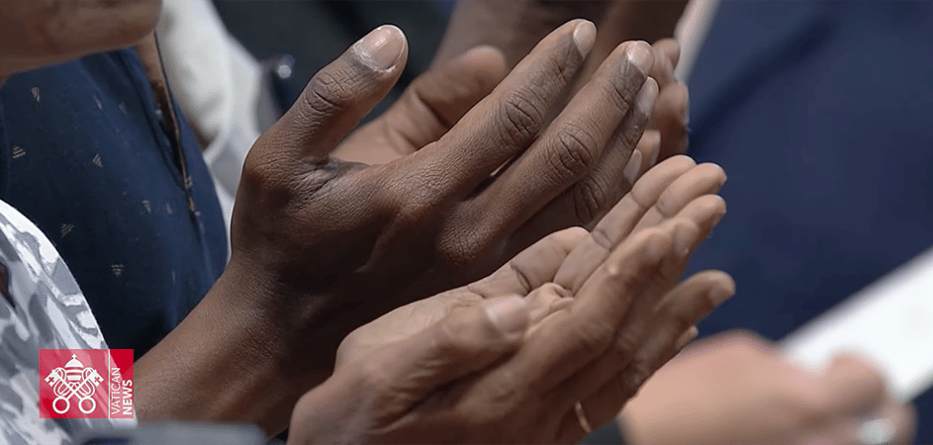Pope Francis is a man of surprises, and he never disappoints.
This past week, the pontiff released a relatively quiet apostolic exhortation, titled Gaudete et Exsultate. Unlike his previous documents, which were preceded by speculation, commentary, and leaks of anticipated content, this magisterial teaching was given, well, almost by surprise.
In the introduction of the exhortation, Francis tells us: “My modest goal is to repropose the call to holiness in a practical way for our own time, with all its risks, challenges and opportunities.”
By itself, the content of the document shouldn’t be a surprise. We’d assume that popes, and religious leaders of any kind, would regularly speak about the ways of prayer, holiness, and goodness.
And yet, every time a pope says something like – “All this is important. Yet with this Exhortation I would like to insist primarily on the call to holiness that the Lord addresses to each of us, the call that he also addresses, personally, to you…” – Christian believers are sincerely surprised because it comes across as news.
How is that possible? Over fifty years ago, the Second Vatican Council retrieved and strongly echoed the universal call to holiness of all believers. Has this summons been lost?
The call is still there. It’s been given to believers since the beginning of the Lord Jesus’ work among us. And while we can blame and debate what happened after the council, the recent exhortation breaks through the ecclesiastical banter and blaming. It redirects us to personal accountability and emphasizes the intimate call we have all received to be holy.
Rather than excuses, distractions, polemics, and the plays that come with Church politics, Francis is leading us back to the heart of faith, namely, to an encounter with God and a real attempt to live according to a path of righteousness. The pope is calling believers back to the liberating first call of the Lord Jesus given to every man and woman.
This invitation is the foundation of all other areas of the Church’s life (at least, it should be). This summons is the reason why believers seek to worship God, pray, study the Bible, live in holy fellowship with others, and selflessly serve the poor and those in need.
It is this hearkening by God that is the light of faith, the joy of the Gospel, the reason why we praise and care for creation, and the cause of our joy in love. Obviously, by citing the names of the pope’s other teaching documents, the argument is made that Francis is reminding all of us, believers and friends alike, of holiness, which is the source and impetus of his work and of the entire mission of the Church.
The pope writes: “This is a powerful summons to all of us… Allow the Spirit to forge in you the personal mystery that can reflect Jesus Christ in today’s world… Let yourself be renewed by the Spirit, so that this can happen, lest you fail in your precious mission. The Lord will bring it to fulfilment despite your mistakes and missteps, provided that you do not abandon the path of love but remain ever open to his supernatural grace, which purifies and enlightens.”
And so, what will we do with this new exhortation? Will it merely be one more document that is briefly read, dismissed because it lacks hot topics, and left behind for issues that are thought to be more pressing or important?
If we follow this incomplete path, then we won’t be giving a holistic and accurate portrayal of Pope Francis or of the Catholic Church. We wouldn’t be fair to our deepest identity and call as the children of God. And, if the exhortation is handled so haphazardly, then we shouldn’t be caught off guard if believers are surprised again in the future when a pope talks about holiness.
The exhortation is an opportunity. It’s a beautiful exposition, based on the Beatitudes, of what holiness looks like. It’s our chance to remind the Church and world of why Francis does what he does, why he loves what he loves, and why he serves those that he serves.
The exhortation, therefore, is a signpost, a reminder, and a prophetic call. It points us all back to a love for God and neighbor. It’s a summons once again to the way of holiness. What will we do with it?

















